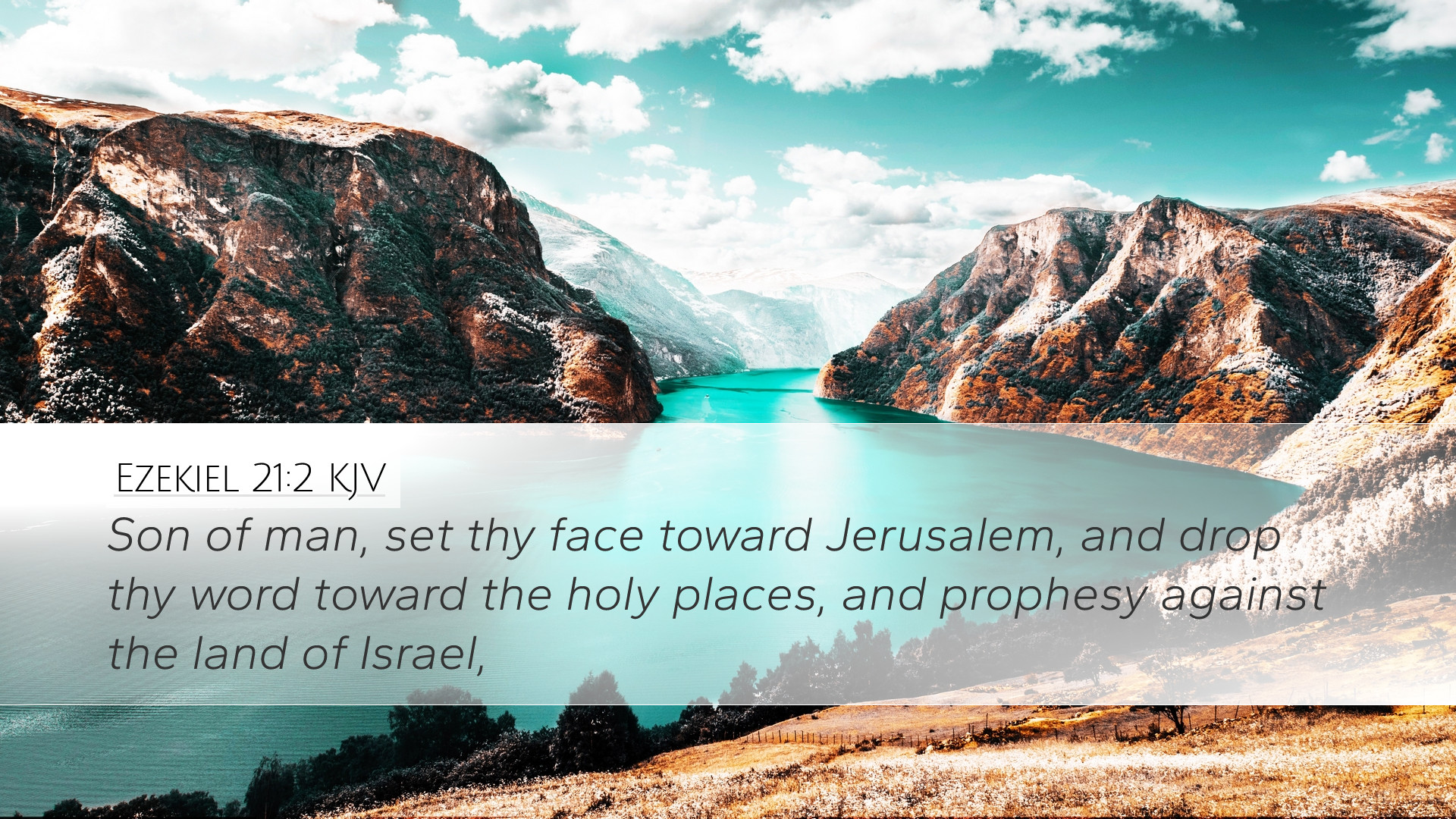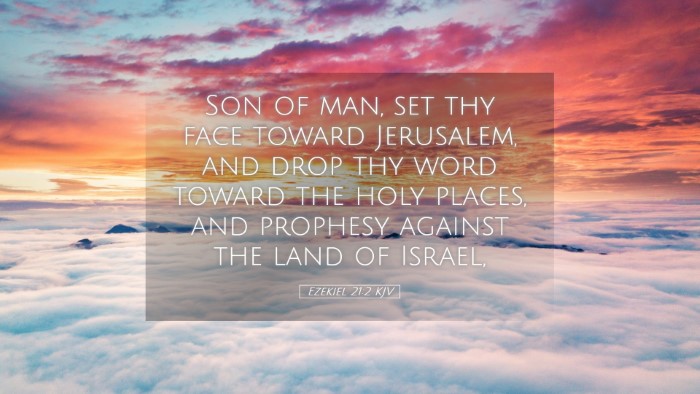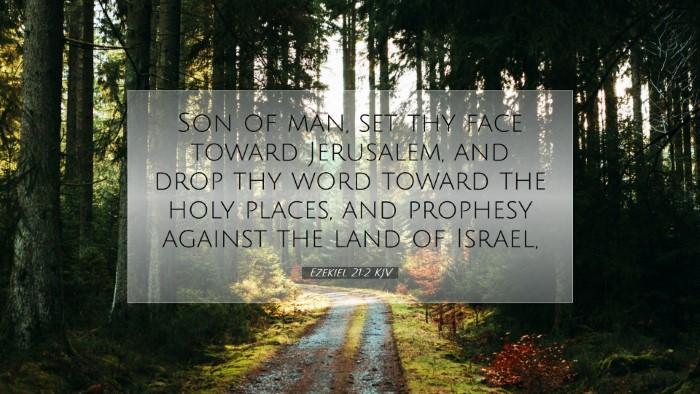Ezekiel 21:2 Commentary
Verse Text: "Son of man, set thy face toward Jerusalem, and drop thy word toward the holy places, and prophesy against the land of Israel."
Introduction
This verse from Ezekiel highlights a significant turning point in prophetic ministry, as the prophet is directed specifically towards Jerusalem and the people of Israel. The call to 'set thy face' suggests a focused intention to convey God’s message concerning the impending doom over Jerusalem and its related implications for Israel. Various public domain commentaries offer valuable insights into the implications of this verse, its historical context, and its theological ramifications.
Historical Context
According to Matthew Henry, Ezekiel's ministry unfolds during a critical juncture in Israel's history, namely the Babylonian exile. The Israelites are in a state of spiritual decline, having turned away from God, which makes the prophetic warnings particularly poignant. The directive to prophesy against Jerusalem underscores the city’s status as the locus of both wickedness and divine manifestation.
Adam Clarke adds that this call to prophesy is significant not only for its immediate audience but also for its future implications. The falling of Jerusalem represents not just a physical destruction but a spiritual crisis for the nation, making the urgency expressed in this passage vital for understanding God’s judgment.
Theological Significance
Ezekiel 21:2 resonates deeply with themes of judgment and repentance. Albert Barnes interprets this directive as a divine mandate that embodies both warning and hope. The prophet's face is set toward Jerusalem, portraying a sense of finality in the proclamation of doom. The emphasis on 'the holy places' indicates that God's holiness is being violated, thus necessitating a pronouncement of judgment.
This passage challenges readers to reflect on their spiritual condition. Matthew Henry posits that the act of prophesying against Jerusalem symbolizes God's active engagement with His people, desiring them to seek restoration despite their waywardness. Such insights reinforce the idea that while judgment is pronounced, there remains an invitation for repentance and return to God.
Prophetic Actions as Symbolism
The directive to 'drop thy word' speaks to the nature of prophetic ministry as a form of real-time engagement with the society that stands in need of divine insight. Adam Clarke elucidates that the act of prophesying implies a performance that encapsulates God’s anger against sin, while at the same time maintains His desire for reconciliation. This duality is essential for understanding the entirety of Israel’s prophetic landscape.
Albert Barnes notes that the vivid imagery used in Hebrew prophetic literature aims to confront the conscience of the Israelites, urging them to perceive the seriousness of their spiritual condition. The pronouncement against the 'land of Israel' signifies a communal failure which must be addressed collectively.
The Role of the Prophet
The role of Ezekiel as a prophet encapsulates the responsibilities of those called to ministry today. Matthew Henry emphasizes that prophetic ministry involves both the declaration of God's judgments and the call to Israel to return to faithfulness, making it imperative for modern pastors and theologians to balance messages of judgment with invitations for grace.
Albert Barnes states that the prophet acts as an intermediary between God and His people, serving to inform them of the error of their ways. This understanding enhances the perception of the gravity of proclaiming God’s word—highlighting the tension between divine justice and mercy that should resonate within the ministry of contemporary believers.
Application for Today
Ezekiel 21:2 serves as a timeless reminder of the necessity for vigilance in the face of societal decline. Adam Clarke asserts that the prophetic voice remains relevant, pushing modern readers to reflect on personal and corporate accountability in light of God’s expectations. Pastors today are encouraged to 'set their faces' toward issues affecting their congregations and communities, effectively communicating both warnings and expressions of God’s love and grace.
Additionally, Matthew Henry warns against the stagnation of spiritual life, urging the necessity of proactive faith. Like Ezekiel, contemporary believers are called not merely to forecast judgments but to embody the hope of God’s restorative power through active engagement with the scriptures and society.
Conclusion
Ezekiel 21:2 encapsulates the essence of prophetic ministry and the unchanging nature of God’s demands upon His people. As illustrated through various public domain commentaries, this verse challenges readers to consider the severity of spiritual failure and the constant invitation to return to God. For pastors, students, theologians, and scholars, the insights gleaned from this commentary underscore the urgent call to address issues of sin while simultaneously promoting the hope found in God’s redemptive plan.


